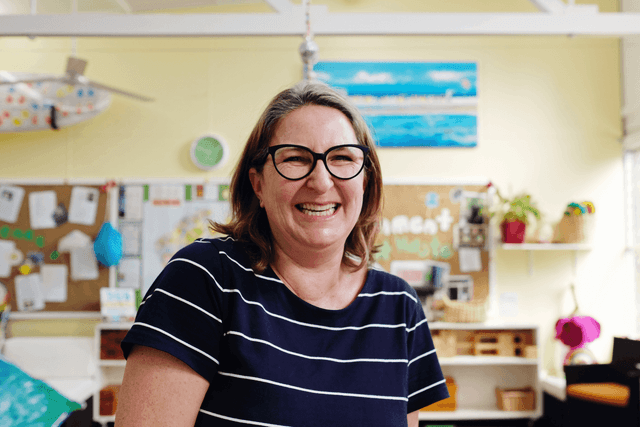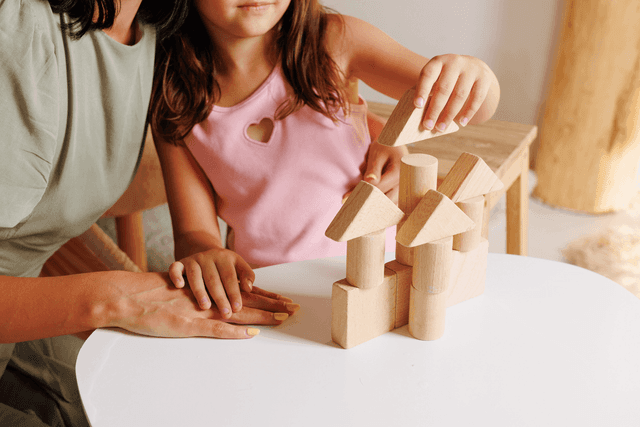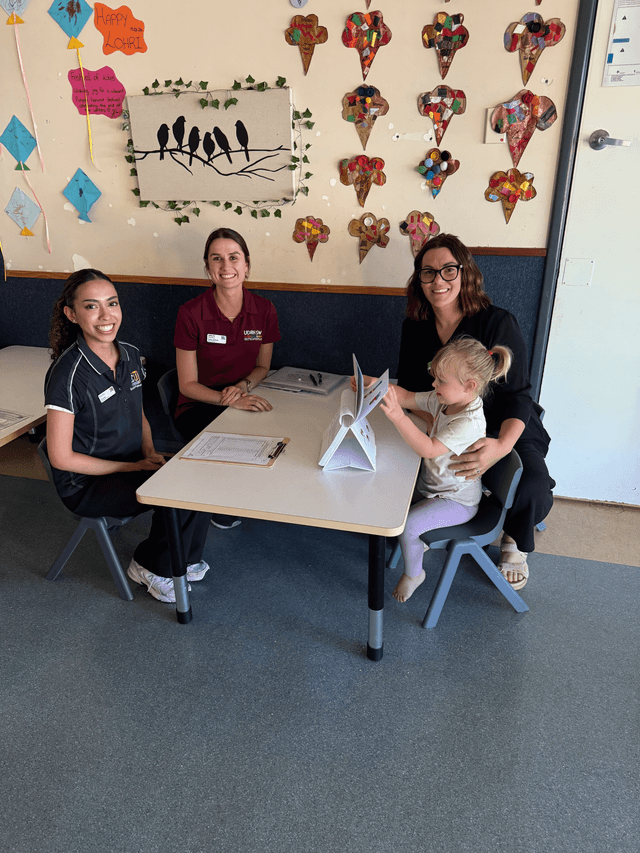Advocacy
General News
In The Field
When it comes to early learning, there’s nothing more important than play

FDC-Friendly
Freya Lucas
Jul 09, 2024
Save
Each year across Australia early childhood education and care settings open their doors, inviting politicians, parents, caregivers, and special friends to share one simple message - early learning matters.
During Early Learning Matters Week, which will be held this year from 5-9 August 2024, early childhood education and care (ECEC) professionals showcase the value, wonder and complexity of the learning which takes place for children on their sites, and of the deeply powerful foundation this learning makes for a lifetime of success. This much-loved event is run by Early Childhood Australia, and proudly supported by KU Children’s Services.In 2024, the message will be strongly shared that much of this learning takes place through play.
What is play based learning, and why is it so important?
In its simplest form, play based learning is what it says on the box - an opportunity for children to learn through playing. Whether it's testing the theory of momentum by rolling a cardboard tube down a slope, investigating concepts of buoyancy at the water play table, or experimenting with sound and voice modulation by adopting different character voices, children are constantly learning while they explore, take risks, engage their imaginations and problem solve.
Throughout their play, children also learn important life skills such as conflict resolution, negotiation, advocacy and emotional regulation. They adopt the perspective of another, learn about resource division and often feel safer to try out their new ideas in the safe zone of play, supporting their social, physical and cognitive development.
The approved learning frameworks define play based learning as ‘a context for learning through which children organise and make sense of their social worlds, as they engage actively with people, objects and representations’.
Educators have a powerful role in facilitating play based learning, tailoring their environments, provocations and explicit teaching to the type of play and interests the children engage in, scaffolding the children’s learning on the familiar and comforting ‘bones’ of their play.
Is play simple, or intentional?
The best play based learning spaces don’t happen by magic - although it often appears that they do.
The ‘magic’ is in fact the work of professional educators and teachers who make a very deliberate effort to create an environment that encourages children to participate.
Play based learning involves the following elements:
Self-direction: The child chooses what they play and how they play. Adults can supervise, accompany or potentially suggest ideas, but the child decides the rest.
Unstructured Exploration: The child is allowed to explore for themselves and select objects or activities based on their own interests. It is important that the environment includes lots of options, but it is ultimately left up to the child.
Fun: Play must be enjoyable for the child. Adults should not force certain activities as it’s important that the child is enjoying what they are doing.
Process-oriented: It is the process of the play that is important, and there is no end goal or correct response.
What do children gain from play based learning?
First and foremost, play-based learning is a wonderful way to promote the literacy and language development of a child by facilitating opportunities for connection, collaboration and conversation.
Even before they talk,children will negotiate play - as anyone who has watched two children who want the same toy will be able to tell you! Over time, these negotiations become more nuanced and sophisticated.
When they play alone, children are also developing their language skills, often narrating the play, speaking to themselves, or giving voices to the toys they are playing with.
Play-based learning is also important in boosting a child’s development of social and emotional skills, such as the ability to develop positive relationships with peers, develop empathy, recognise emotions and as a way to manage big feelings.
When children are experiencing heightened emotion, play can offer a safe space to work through any pain or grief, release frustration, play out a stressful or traumatic event and give it a different outcome, or simply process a day where everything has been too much.
Children’s imagination and creativity is developed through play, with sticks becoming swords, fairy wands, walking supports or spoons. Different personas are adopted, and children think not as themselves, but as the doctor, police officer, dragon or lion tamer they are playing as.
Confidence and resilience are developed through negotiating play, with children using play as a space to take risks, experiment, and grow in their independence. Being able to suggest to the group “I’m the father, and you’re all the hungry babies,” requires confidence, and regardless of whether the group does or does not want to be hungry babies, there is learning to be had for the next play opportunity.
In play, children are not looking to adults to scaffold or facilitate - they are on their own, with their ideas and skills, seeking opportunities and moments to try out new ideas.
Finally, play helps children to develop both fine and gross motor skills. Throwing, climbing, running and jumping develop gross motor skills, balance and hand-eye coordination, while play which focuses on drawing, painting, threading and using your pincer grip to pick flowers for your potion develops fine motor skills.
Early Learning Matters Week is a wonderful opportunity to showcase the many elements of a play based learning program. ECA has also developed a Statement on Play to help educators and families understand what children get from play, and how to create opportunities for play every day.
Want to learn more about how your service can be involved? Check out the dedicated website to register your event, access merchandise, invite an MP to attend your service, and access resources to help promote early learning in your community.
Don’t miss a thing
Related Articles



















